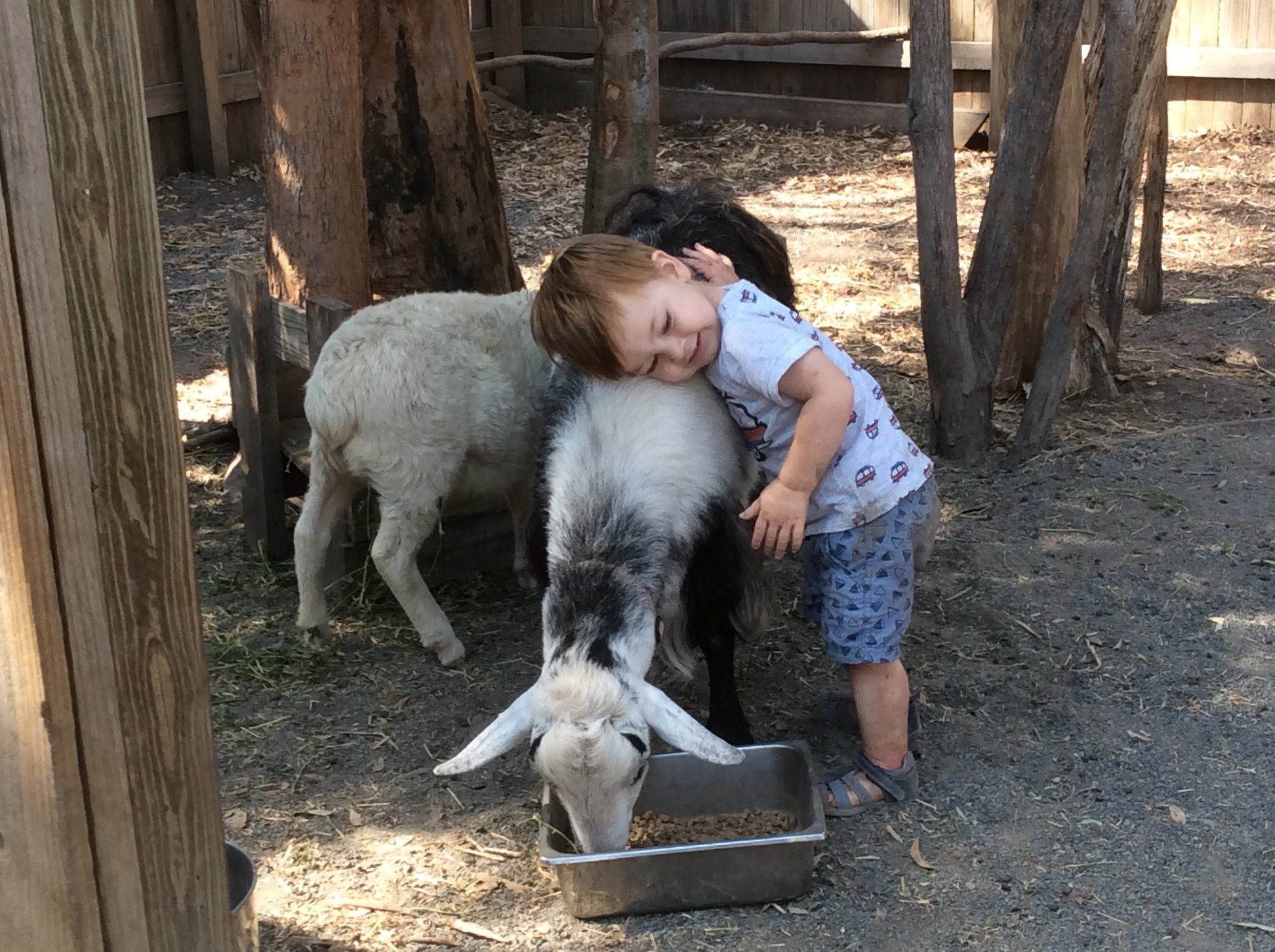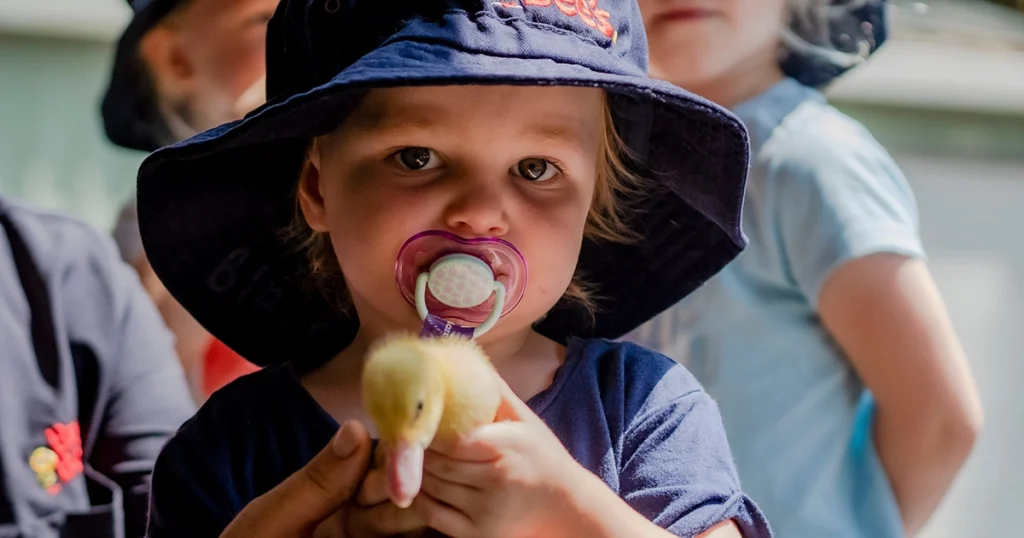At Busy Bees, we believe that nurturing a child’s natural curiosity about animals is an essential part of early childhood education. Research shows that children have an innate biological connection with animals, and by fostering this bond, we create meaningful opportunities for them to appreciate the world around them.
This affinity for the natural world is apparent when we observe children’s excitement about animals and their strong desire to interact with them. The bonds that children form with pets and their fascination with all things related to nature can present an important opportunity to develop important life skills.
Understanding the role of Animals in Early Childhood
Recent studies show that children who interact with animals in early childhood develop greater empathy, self-esteem, and social skills. Whether it’s watching a butterfly flutter by or gently petting a classroom animal, these moments provide valuable learning experiences. The benefits gained from these experiences go far beyond simple fascination; they teach care, respect, and kindness towards all living things.
By integrating animals into early childhood education, educators can create nurturing environments that strengthen emotional well-being and foster a lifelong connection with nature and learning. Such interactions align with the standards set by the Australian Children’s Education and Care Quality Authority (ACECQA).

Image: Busy Bees at Fraser Coast
Developmental Benefits of Animals In Early Childhood
Exposure to Animals Helps Build Emotional Intelligence and Social Skills
“The animal is a conduit for learning to be human: some propose that it is only through the animal that we recognise our humanity.” – June Bone (2013)
Contemporary thinkers such as Bone (2013) consider the animal as the “fourth teacher” in early childhood development, acknowledging the importance of caring for and simply being with animals in developing children’s sense of empathy, responsibility and belonging within their world. Whether it’s feeding a guinea pig, observing insects in the garden, or learning about farm animals, these experiences help children build meaningful connections with the world around them.
Animals, therefore, play an important role in children’s emotional development, with research showing that children who interact with them tend to be more responsible, patient, and cooperative. Furthermore, the presence of animals in an early learning environment can also reduce stress, improve mood, and provide comfort, particularly for children with additional needs such as Autism Spectrum Disorder (ASD).
Exposure to Animals Promotes Learning and Development Growth
Children can truly thrive when exploring natural learning environments and interacting with animals that they may not experience at home. Whether it’s in the form of a permanent service pet or temporary animal visits to the classroom, children’s experiences with animals provide a gateway to learning about science, nature, and sustainability, lifecycles, habitats, as well as the importance of conservation in an age-appropriate way. Children also benefit from fine and gross motor skill development through activities like feeding, grooming, and handling the animals. Children learn to describe their observations, ask questions, and participate in storytelling related to animals.
How Busy Bees Educators create meaningful animal interactions
At Busy Bees many of our Busy Bees locations offer animal experiences for children in a way that supports their learning and role models appropriate behaviours and relationships with animals.
- Educators model appropriate behaviours and support children during interactions with animals. Educators teach children about quiet observation and how to handle and approach animals safely.
- Children are supervised at all times during their interactions with Service pets
- Educators model and enforce appropriate hygiene and safety practices, such as washing our hands before and after touching an animal.
- Educators consider and respect the ages, skill level and preferences of individual children and provide appropriate experiences
- Where the Service has a dedicated barnyard or farm on-site, we employ experienced farmers and rangers who are responsible for their care. Children are offered opportunities to assist in the daily care of the animals, closely supervised by Rangers and Educators.
- Bush Kinder programs are offered where Services have suitable natural bushland nearby, where children are encouraged to safely explore and learn about the natural world in their own backyards.
- The Service encourages visits from veterinary and wildlife experts, to help children learn about safety around animals and respect for our natural Australian wildlife
- Educators build on the children’s interest in animals to extend their learning about sustainability and caring for their environment
- The Service consults appropriately with Families in regards to animal experiences and Service pets.
By incorporating animals into early childhood education settings, we lay the foundation for future learning environments where children learn to care for animals, as well as learn to care for peers and their environment. This holistic approach to education brings a sense of community and belonging where children can thrive.
